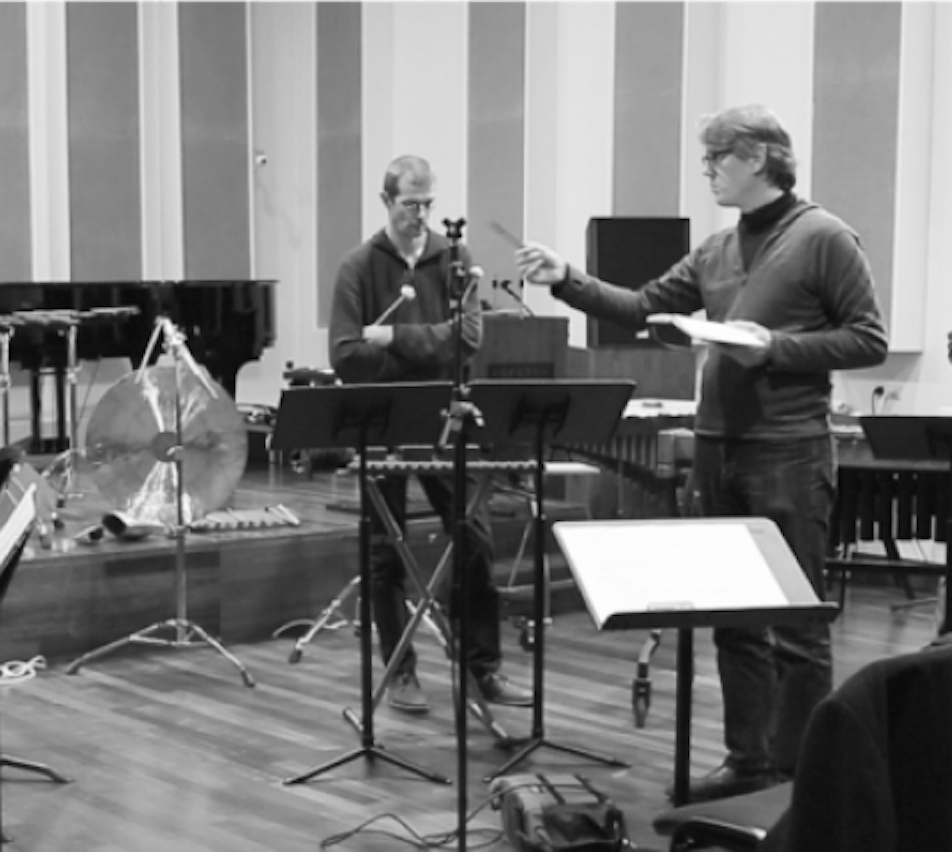

Vuma Levin
| Keywords: | transcription, notation, composer and performer, african music |
| Duration: | Started in 2023 |
| Musician type: | stringed instrument |
| Host institution: | Amsterdam University |
| Keywords: | transcription, notation, composer and performer, african music |
| Duration: | Started in 2023 |
| Musician type: | stringed instrument |
| Host institution: | Amsterdam University |
As a person of mixed heritage and a citizen of the nascent post-Apartheid South African state, Vuma has always been interested in the role of race, power, and hybridity in negotiating identity. His time in Europe also sensitised him to the prevalence of Neo-colonial discourses that disempower and essentialise Africans. In this context, his artistic aims are to empower previously marginalised, black African musical histories and to compose hybrid works reflecting on his own subject position as a black South African, exposing these identities as emergent rather than fixed. To this end, the transcription, analysis and contextual study of black South African traditional indigenous musics has been central to his practice-based research as a composer-performer. The insights from this process provided the foundation for developing hybrid compositions in the South African Jazz idiom, tapping into its eschewal of genre delineation (Ansell 2005). As a result, Vuma has composed and toured four critically acclaimed albums.
Despite these successes, he has noted several limitations in this process. Transcription and notation, as sense-making mechanisms, can only illuminate a certain layer of musical meaning (Kramer 2002). This, combined with their status as subjective, culturally situated practices, means that essential features of the studied music will be lost. This lost textual and contextual information profoundly affects compositional and performance practices based on these transcriptions. Vuma's research aims to investigate how this lost information can be accounted for and ultimately enlisted to (re)centre traditional indigenous African musical epistemologies and praxis and enrich my compositional performance practice.
Transcription of music can be defined as “the analysis of an acoustic music signal for producing a parametric representation of the signal” (Klapuri 2008: 72). This implies that transcription is not merely the process of inscribing sonic materials into staff notation. Rather it can be understood as the attempt to translate auditory information into some representational framework that encodes certain musical and extra-musical parameters into sign, symbol and/or practice (Kaufman Shelemay 2000). Additionally, the practice of transcription is mediated by human perception, which is the function of a culturally situated lens (Marian-Bălaşa 2005). To this end, the resulting representational framework will necessarily privilege parameters of importance to particular cultures and obscure those of non-importance. Therefore, distortions are inevitable when trying to read a particular musical culture through a representational framework designed to account for another (Koetting 1970, Seeger 1958).
These distortions are revealed in attempts to express traditional indigenous African musics (oral, practice-based traditions) in the vernacular of the hegemonic western framework of representation, staff notation (a written tradition) (Grupe 2005). Of particular concern is staff notation’s limited ability to account for texture/expression, the centrality of motion, African rhythmic structures, cyclical song forms, pitch fluidity, deviations from the standard division of the octave and perhaps most importantly, non-musical, contextual concerns that are integral to an understanding of African music as an epistemology (Shelemay Kaufman 2005). Consequently, these parameters have been obscured when using staff notation as the basis for transcribing, composing and performing in my own practice. Therefore, the primary question the research would like to answer is, how can a plurality of representational frameworks for capturing and encoding the musical experience be enlisted to affect the creative-performance axis? In doing so, Vuma hopes to demonstrate, via a written dissertation, the development of compositions and a performance recital, how these frameworks can yield creative outcomes that broaden the expression of those musical and extra-musical parameters in traditional indigenous South African music, that cannot be adequately captured by traditional staff notation.